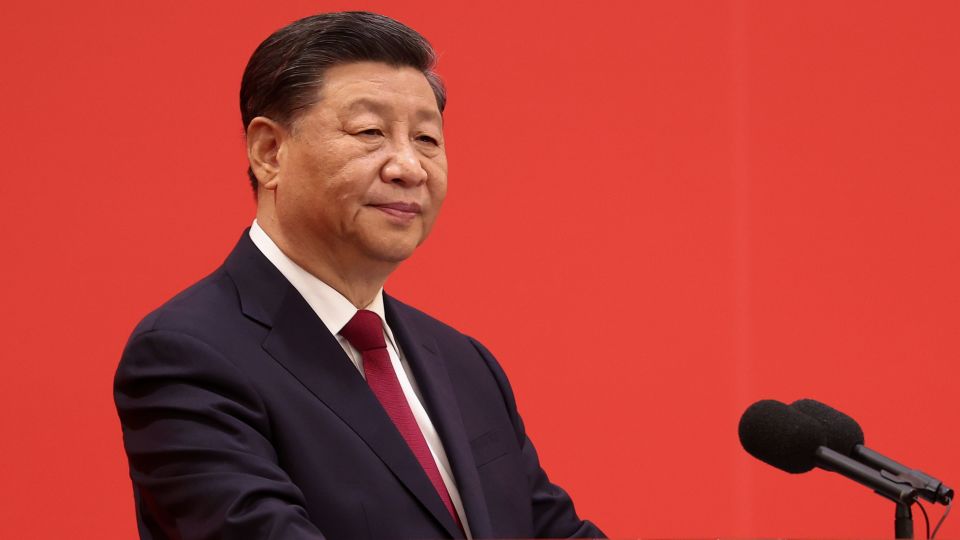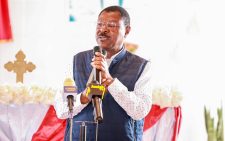Mixed bag of fortunes in President Xi’s re-election for third term

The election of Xi Jinping for a third term both as president of the People’s Republic of China (PRC) and chairman of the Central Military Commission during the third plenary meeting of the first session of the 14th National People’s Congress on Friday has caught the headlines of international media. It is feat that took place without the controversy that would have characterized such a process in other jurisdictions.
It is rather easy to figure out why President Xi was re-elected unanimously for what the Western media termed as “an unprecedented third term”. Of course, these sentiments were not in good faith. To them, the milestone goes against the West’s version of liberal democracy which thrives on deception.
Xi’s re-election for third term is a mixed bag of fortunes for different players, depending on the side of the expanding geopolitical divide they have taken. While for some it means continued stability and predictability, for others it means further frustration in their quest for hegemony and ideological estrangement.
The development is bad news for some Western countries, especially the United States, to who Xi had just read the riot’s act for meddling in China’s internal affairs, particularly on the Taiwan issue. In addition, the West now fears that there will be no relenting in the growing Sino-Russia bond amid the escalating Russia-Ukraine war.
To the 1.4 billion Chinese citizens and China’s allies spread around the world, Xi’s re-election is a boon for peaceful and common development. There is no arguing with the fact that since taking power in 2012, Xi has sustained the massive growth of the Chinese economy, whose size today is only second to that of the U.S.
In February 2021, Xi declared that China had achieved a “miracle” by eradicating absolute poverty among 100 million of the country’s poor citizens. The historical achievement took place over an eight-year period during his presidency. No other country, not even the developed ones, have ever made such a bold declaration amid their decades-long legacy of social and economic stability.
In the last decade under Xi’s leadership, China has become a leader in many sectors including its space program, digital and technological innovations, environmental conservation and green energy, even in sports and culture. China’s infrastructure both at home and overseas is also unparalleled.
Xi will also work on the further establishment of the Global Security Initiative (GSI) and the Global Development Initiative (GDI). The initiatives were mooted by China’s president with the aim of filling in the gaps in the journey towards achievement of the United Nations Sustainable Development Goals by 2030.
So far, more than 80 countries and regional organizations have endorsed the GSI for its embodiment of the principles of global security devoid of unilateralism. By the end of April, 2022 over 100 countries had expressed support for the GDI, while more than 50 countries had joined the Group of Friends of the GDI.
Xi’s unique socialist leadership philosophy is contained in the now four-volume “Xi Jinping: The Governance of China”. Taken together, these four books offer a unique perspective on the Chinese Communist Party and its vision for the future. They contain excerpts and summaries of his numerous speeches, interviews, briefings and correspondence. Each article is accompanied by relevant notes on China’s social system, history and culture.
The fourth volume, which is a collection of 109 excerpts of Xi’s oral and written statements from February 3, 2020 to May 10, 2022, offers a deeper insight into the life of the Chinese people under the leadership of the Communist Party of China, and explains China’s development path, approach and theory of government to the international community. Overall, these books have undoubtedly helped many leaders in the world to draw inspiration, courage and wisdom from Xi’s philosophy.
But even as China and its allies celebrate Xi’s re-election, his victory has been enabled by the team of leaders that help him to implement his government’s policies. Members of the meritocratic Politburo Standing Committee of the CPC have supported the president to decide and implement the party’s political, economic and social agenda.
Such consensus is rare anywhere in the world, and speaks volumes about the shared vision of the country’s leadership from the highest echelons of the country’s power structures, to the grassroots level. It shows that China’s leadership addresses the priorities of its citizens and is effectively responsive to their real needs.
The success of the foregoing has been attributed to Xi’s early years when he worked in the villages and counties where he encountered real life situations of the rural poor. He has since carried this empathy with him throughout his leadership as president. Xi’s rise from the grassroots to the helm of the governing CPC and the state seems to have been predestined. Even if he was to be subjected to a popular vote across every nook and crook of the country, he would have garnered majority of the votes.
His fidelity to the PRC Constitution is also unquestionable, something that he reiterated during his acceptance speech. This includes opening himself to the people’s supervision in his commitment to “work for a great modern socialist country that is prosperous, strong, democratic, culturally advanced, harmonious, and beautiful”.










